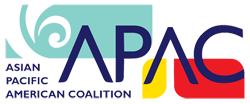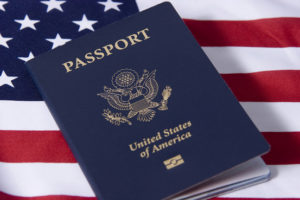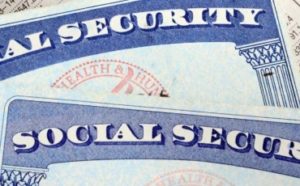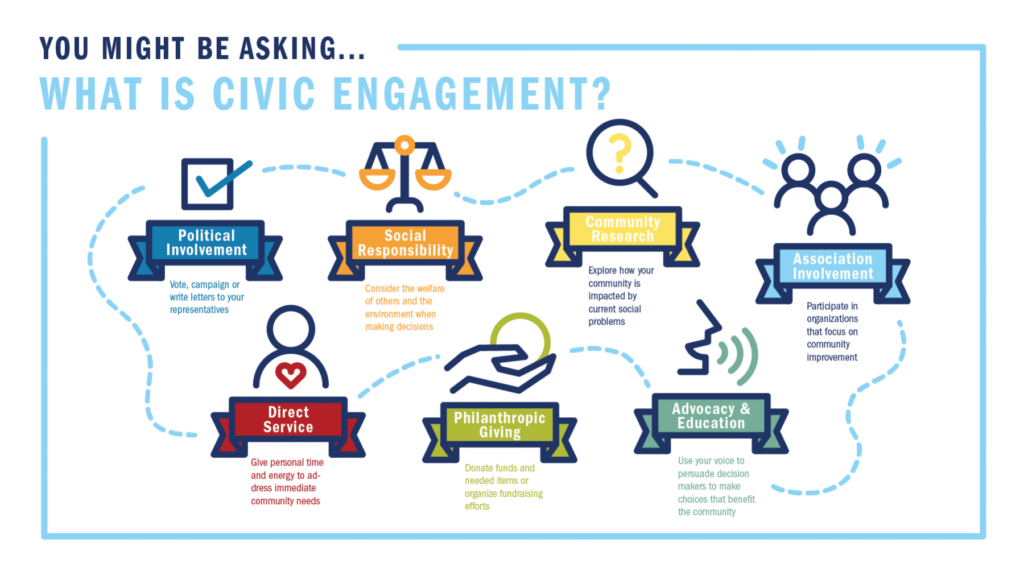After Becoming a U.S. Citizen
After passing your U.S. Citizenship Interview and Test and after swearing in, there are a number of actions you will be able to do to finalize your status as a U.S. Citizen. You can reference the USCIS website for more details on what to do after the Naturalization Ceremony.
Apply for a U.S. Passport/Passport Card
- It is strongly recommend that you apply for a U.S. passport through the U.S. Department of State soon after you take the Oath of Allegiance. Please allow sufficient time between your naturalization ceremony and any planned travel to receive your passport.
- In addition to your Certificate of Naturalization, a U.S. passport serves as official proof of citizenship.
- You will get an application for a U.S. passport at your naturalization ceremony in the U.S. Citizenship Welcome Packet. It is also available at most U.S. Post Offices or via the web at http://travel.state.gov.
- You will need to submit your original certificate of naturalization or citizenship AND a photocopy when applying for your U.S. passport.
Register to Vote
- Voting in federal elections is both a right and a responsibility that comes with U.S. citizenship. After you take the Oath of Allegiance at an administrative ceremony, you will have the opportunity to register to vote.
- At administrative naturalization ceremonies, forms may be distributed by a state or local government election office, a non-governmental organization, or a USCIS official.
- If a non-governmental organization assists you in registering to vote at a USCIS naturalization ceremony, that organization may collect and submit your form to the appropriate Election Official, but it is not permitted to retain any of your personal information.
- You may register to vote at other locations in your community, which may include post offices, motor vehicle offices, county boards of election, and offices of your state Secretary of State. For more information, please see “A Voter’s Guide to Federal Elections.”
- You can register to vote in San Diego by visiting https://www.sdvote.com
Update your Social Security Record
- After your naturalization ceremony, you should update your Social Security record at a local office of the Social Security Administration (SSA). Please wait at least ten days after your ceremony before going to the SSA to ensure that data reflecting your naturalization has been updated.
- You will need your Certificate of Naturalization or U.S. passport when you visit the SSA to update your record. To find your local Social Security office, call 1-800-772-1213 or visit www.socialsecurity.gov.
Civic Engagement and Community Involvement
- Civic engagement involves “working to make a difference in the civic life of one’s community and developing the combination of knowledge, skills, values and motivation to make that difference. It means promoting the quality of life in a community, through both political and non-political processes.”
- Communities with inclusive civic engagement—where everyone has a place at the table to define, direct and implement public services and amenities—experience greater equity, display greater civic pride and exhibit stronger civic responsibility.
- Civic engagement includes both paid and unpaid forms of political activism, environmentalism, and community and national service. Volunteering, national service, and service-learning are all forms of civic engagement.
Getting Involved – Town Councils, Nonprofits, Planning Committees
Town Councils
- A Town Council is a statutory body and is the most local level of government. It has an important role in promoting the town, representing its interests and supporting the work of different groups in the community.
- University City Community Association,
- Clairemont Town Council,
- Hillcrest Town Council,
- La Jolla Town Council,
- Linda Vista Town Council,
- Mission Beach Town Council,
- Oak Park Community Council,
- Ocean Beach Town Council,
- Pacific Beach Town Council,
- Serra Mesa Community Council,
- Sorrento Valley Town Council
Planning Committees
- There has been long-standing citizen involvement in planning in the City of San Diego. The City Council adopted policies in the 1960s and 1970s that established and recognized community planning groups as formal mechanisms for community input in the land use decision-making processes.
- Community planning groups (CPG) provide citizens with an opportunity for involvement in advising the City Council, the Planning Commission, and other decision-makers on development projects, general or community plan amendments, rezonings and public facilities.
- The recommendations of the planning groups are integral components of the planning process, and are highly regarded by the City Council and by staff.
- List of planning committees – https://www.sandiego.gov/planning/community/contacts
Nonprofits
- A nonprofit organization, also known as a non-business entity, not-for-profit organization, or nonprofit institution, is dedicated to furthering a particular social cause or advocating for a shared point of view.
- USD researchers’ analyses of several federal, state and national data sources tell us about San Diego County’s nonprofit ecosystem.
- 12,832 – Number of all federally registered nonprofit, tax-exempt organizations in San Diego County.
- This includes everything from homeless shelters and fundraising foundations to trade associations and advocacy groups that promote causes such as increased transit options or environmental protection.
- 9,847 – number of registered 501(c)(3) charities in San Diego County, an Internal Revenue Code status that means the groups are tax-exempt.
- 12,832 – Number of all federally registered nonprofit, tax-exempt organizations in San Diego County.
- Donations to these organizations are tax-deductible. The Internal Revenue Service allows organizations that serve the following purposes to apply for this designation: charitable, religious, educational, scientific, literary, public safety testing, fostering national or international amateur sports competition and preventing cruelty to children or animals.
- The number of San Diego County 501(c)(3) organizations has grown by more than 50 percent in the last 15 years.
- 1,162 – That represents the number of human services public charities in San Diego. This is the largest charitable category in the region. These groups provide services to specific communities such as children, seniors and the homeless. Human services charities include Boys & Girls Clubs, Meals-on-Wheels and Mama’s Kitchen, which delivers meals to homebound San Diegans with AIDS or cancer.
- Most of those 105,503 employees worked for educational institutions or health care nonprofits, including hospitals.




